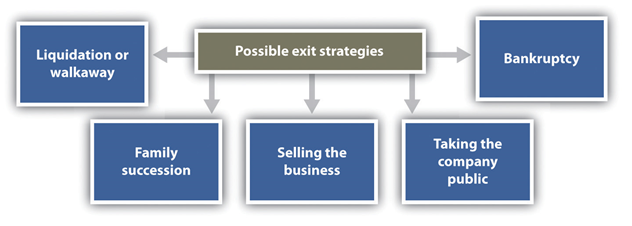When starting a business, the last thing on your mind is having to shut it down. However, business scenarios are always uncertain and it is always wise to finish off business plans with a well-defined exit strategy.
The main components of a business plan are an executive summary, company description, market analysis, competitive analysis, customer demographics, management team, organization chart, sales and marketing strategies and financial projections. This will provide potential investors, lenders, partners and vendors a clear insight into the need for the business and how it will differ from the competition while elucidating the company’s structure and goals.

While the business plan will highlight how the new venture can stay in business and make profits, it should also clarify how the entrepreneur plans to cut his losses and exit the business if it does not work as expected.
This is why business plan writers Los Angeles always round off every business plan with an exit strategy. It is especially crucial for startups and small businesses.
What is an exit strategy?
An exit strategy is not just about getting out of the business in case of failure. This is also an entrepreneur’s strategic plan to reduce or liquidate his stake in the business by selling part of the ownership to investors or another company and make a substantial profit. It can also be used by the seed investors to cash-out their investment. Therefore, the exit strategy ensures that both the business owner and investors are protected.
It is very important for business owners to define a clear exit strategy even before going into business. This will influence business decisions and should be tweaked as the business grows or the market changes.
Securing Business Future
There are a number of exit strategies and the choice will depend on the size of the business, how much control the business owner wants to retain or relinquish and other conditions.
The most common exit strategies include strategic acquisitions, initial public offerings (IPO) and management buyouts. A strategic acquisition completely relieves the founder of ownership responsibilities while bringing in the greatest amount of liquidity in the shortest time frame. An IPO is an immensely lucrative prospect as it not only brings in a high payoff but also adds to the prestige. But this will work only if the business has managed to be successful.
Management buyout involves the management team taking over the assets and operations of the business and transfers control from the owners to the employees.
On the other hand, liquidation is the best way to limit losses in case of business failure. After all, nobody wants to file for bankruptcy!
The Plan Writers (www.planwriters.com) are a skilled and experienced team of professional business plan writers near me that will cover all the bases of business plan writing from company description to financial analysis. The financial section will also include a strong and well-defined exit strategy that will convince investors that their money will be protected even if the business fails. Your blog post content here…